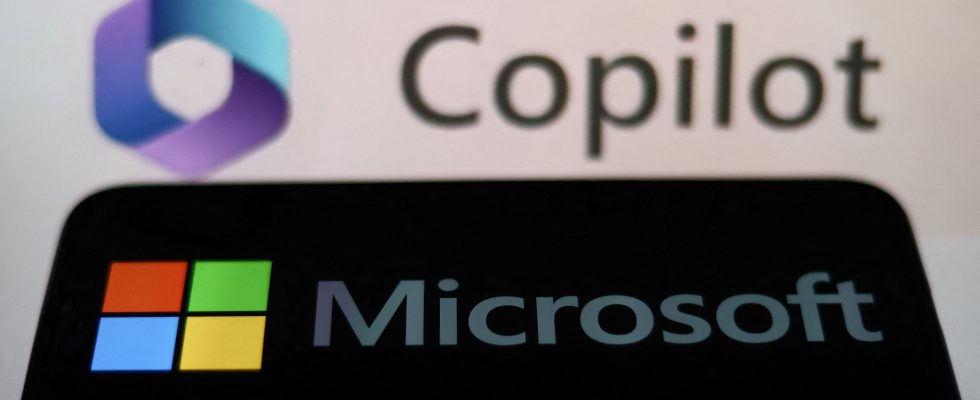What did you do at the office this week? Your schedule has probably been punctuated by meetings – in person or virtual -, presentations, writing notes and emails, developing spreadsheets, or exchanging instant messages. It is also likely that all this will be done on Microsoft software; Office is used by 345 million people around the world and is present in more than 80% of French companies. Suffice to say that when the brand invents or modifies an office product, it becomes a quasi-global standard, available on Word, Excel, PowerPoint or Teams.
The new standard that Microsoft wants to impose is called Copilot. It is a personal assistant that is asked to perform daily tasks using a simple dialog interface. Copilot is based on an improved version of ChatGPT, the powerful artificial intelligence model developed by OpenAI of which Microsoft owns 49%. The different versions of Copilot were presented on September 21 in New York. And what follows is based on three hours of demos, testing, and discussions with Microsoft engineers.
To demonstrate the capabilities of its new software, Microsoft imagined a scenario where sales teams work on the launch of a new electric bicycle model. The meetings follow one another, the memos pile up, the emails flood. All this is duly recorded and indexed. Copilot potentially has access to everything. It can therefore draw on the entire collective memory of the company to facilitate everyone’s work. Here are some examples: How to decide the best date to launch a new model? The question is asked in these terms to Copilot who will sift through memos, presentations, email exchanges, meeting transcriptions, etc. and will analyze all the constraints linked to the project, from the launch date of a competing product, to the internal logistical problems through the testing phases, everyone’s agendas, to summarize everything in a concise table.
A cognitive assistant
We can even ask him to list the pros and cons of launching on a particular date… Based on heterogeneous elements on the same subject, Copilot can generate any type of document: a presentation, a press release, a argument, a list of procedures, etc. It is also a cognitive assistant. A product manager asks the question: “What was So-and-so referring to when he talked last month about a new bike with these features?” Copilot searches the collective memory and in 30 seconds brings out relevant emails, messages, conversations and even summarizes everything.
The time saving is obvious. Instead of manually searching countless sources, you assign the task to your personal assistant. No need to be present at all meetings anymore; for the less important ones, simply ask Copilot to summarize the salient points or to highlight a specific subject using simple questions, “During such a meeting, what was said on such and such a point ?” With this type of assistance, both personal and collective, we see the emergence of a new way of working, where the user dialogues with a machine having a panoramic view of the entire intellectual production of the group.
There is obviously a downside to this. Since Copilot has an eye on everything, it is also a perfect instrument for evaluating employees. He is able to measure everyone’s level of contribution, speaking time in meetings or highlight dissonant opinions by answering with disturbing precision questions like, “Does anyone disagree with this decision and why? Compulsive dissidents are warned. Microsoft invokes the countless locks intended to prevent abuse, but after in-depth examination, it appears that as spectacular as it is, this tool is also capable of co-piloting increased surveillance of employees. Labor ethicists will face an important new topic.
